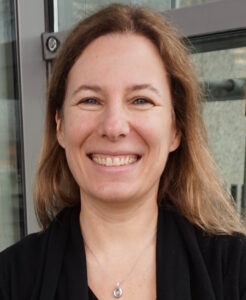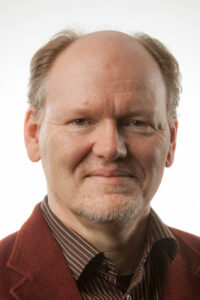Educating the Next Generation of Software Architects
Brief Description: We will explore the expectations of the industry from software architects and how we currently prepare software engineers for roles in software architecture. We will reflect on the current state of practice, education, and research in software architecture and discuss what the future needs to look like.
Panelists

David Garlan, Professor, Carnegie Mellon University, USA
Bio: David Garlan is a Professor of Computer Science and Associate Dean in the School of Computer Science at Carnegie Mellon University. His research interests include software architecture, self-adaptive and autonomous systems, formal methods, and cyber-physical systems. He is recognized as one of the founders of the field of software architecture, and in particular, formal representation and analysis of architectural designs. He has received a Stevens Award Citation for “fundamental contributions to the development and understanding of software architecture as a discipline in software engineering,” an Outstanding Research award from ACM SIGSOFT for “significant and lasting software engineering research contributions through the development and promotion of software architecture,” an Allen Newell Award for Research Excellence, an IEEE TCSE Distinguished Education Award, and a Nancy Mead Award for Excellence in Software Engineering Education. He is a Fellow of the IEEE and ACM.

Patricia Lago, Professor, Vrije Univeristy, The Netherlands
Bio: Patricia Lago is a professor at the Vrije Universiteit Amsterdam, the Netherlands, in the Software and Sustainability (S2) research group in the Computer Science Department. She has a Ph.D. in Control and Computer Engineering from Politecnico di Torino and a Master’s in Computer Science from the University of Pisa, both in Italy. She is the recipient of an Honorary Doctorate at the Norwegian University of Science and Technology (NTNU) for her scientific contribution to software sustainability.Her research is at the intersection of software architecture, sustainability, and quality assessment. She is the initiator of the Computer Science Master Track in Software Engineering and Green IT, and the director of the Master Information Sciences. She co-founded the Green Lab, a place where researchers, students, and companies collaborate to measure the energy footprint of software solutions.Her philosophy is that research should be industrial-relevant and serve the final purpose of being applied in practice. To this end, her research specifically focuses on the “real’’ needs of practice by establishing collaboration with partners from both the private and public sectors. In January 2023 she officially launched at the VU, the DiSC – Digital Sustainability Center.

Uwe Zdun, University of Vienna, Austria
Bio: Prof. Dr. Uwe Zdun is a full professor of software architecture at the Faculty of Computer Science, University of Vienna. Before that, he worked as an assistant professor at the Vienna University of Technology and the Vienna University of Economics respectively. He received his doctoral degree from the University of Essen in 2002. His research focuses on software design and architecture, empirical software engineering, distributed systems engineering (microservices, service-based, cloud, APIs, IoT, and blockchain-based systems), DevOps and continuous delivery, software patterns, software modeling, and model-driven development. Uwe has published more than 275 articles in peer-reviewed journals, conferences, book chapters, and workshops, and is co-author of the books “Remoting Patterns – Foundations of Enterprise, Internet, and Realtime Distributed Object Middleware”, “Process-Driven SOA – Proven Patterns for Business-IT Alignment”, and “Software-Architektur.” He has participated in 34 R&D projects. Uwe is editor-in-chief of the journal Transactions on Pattern Languages of Programming (TPLoP) published by Springer, Editor of the Journal of Systems and Software (JSS) published by Elsevier, Editor of the Computing journal published by Springer, and Associate Editor-in-Chief for design and architecture for the IEEE Software magazine.

Eltjo Poort, CGI, The Netherlands
Bio: Eltjo R. Poort leads the architecture practice at CGI in The Netherlands. In his 35-year career in the software industry, he has fulfilled many engineering and project management roles. In the 1990s, he oversaw the implementation of the first SMS text messaging systems in the United States. In the last decades, he produced various publications on improving architecting practices, including a Ph.D. thesis. Eltjo is best known for his work on Risk- and Cost-Driven Architecture, a set of principles and practices for agile architecting, for which he received the Linda Northrop Software Architecture Award in 2016. His digital architecture blog can be found at eltjopoort.nl. In his spare time, Eltjo plays the violin in Symfonieorkest Nijmegen.

Ian Gorton, Northeastern University, Boston
Bio: Ian Gorton is a professor at Northeastern University Boston. He has been working with scalable distributed systems for 30 years, working in the software industry, academia, and government research and development labs in the U.S. and Australia. His research and development expertise lies in software architectures and technologies for scalable, big data systems in various scientific, engineering, and health-related domains. He was previously a senior member of the technical staff at the Carnegie Mellon University Software Engineering Institute. Prior to Carnegie Mellon, he served as a laboratory fellow at the U.S. Department of Energy’s Pacific Northwest National Lab. He has published more than 150 research papers, and 4 books and is a senior member of the IEEE Computer Society. He is the author of the recent book Foundations of Scalable Systems published by O’Reilly in 2022.
Facilitator
![]() Ipek Ozkaya, Carnegie Mellon Software Engineering Institute, USA
Ipek Ozkaya, Carnegie Mellon Software Engineering Institute, USA
Bio: Ipek Ozkaya is a principal researcher and the technical director of the Engineering Intelligent Software Systems group at the SEI. Ozkaya’s primary interests include developing techniques for improving software development efficiency and system evolution with an emphasis on software architecture practices, software economics, and agile development. Ozkaya’s most recent research focuses on building the theoretical and empirical foundations of managing technical debt in large-scale, complex software-intensive systems and the software engineering of AI-enabled systems. Ozkaya is editor-in-chief of IEEE Software magazine and is the co-author of a practitioner book, Managing Technical Debt, Reducing Friction in Software Development. Ozkaya holds doctoral and master’s degrees in computational design from Carnegie Mellon University. She is also the General Co-Chair of ICSA 2023
